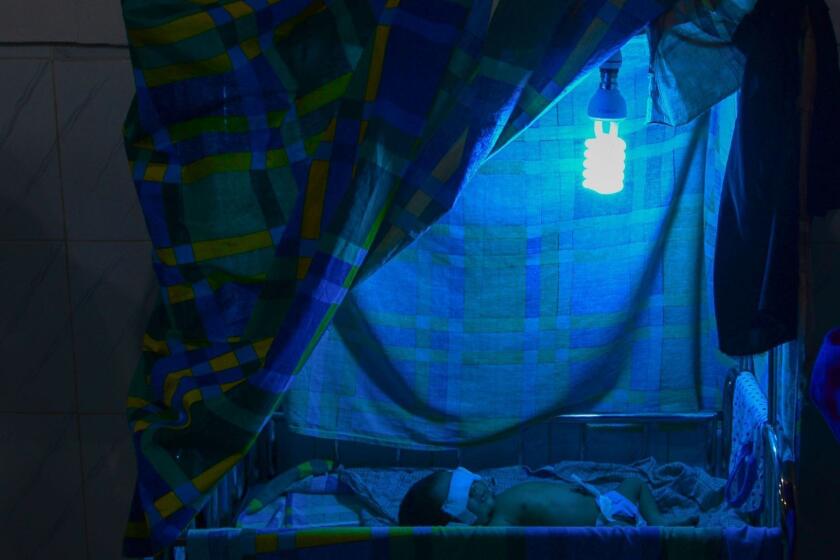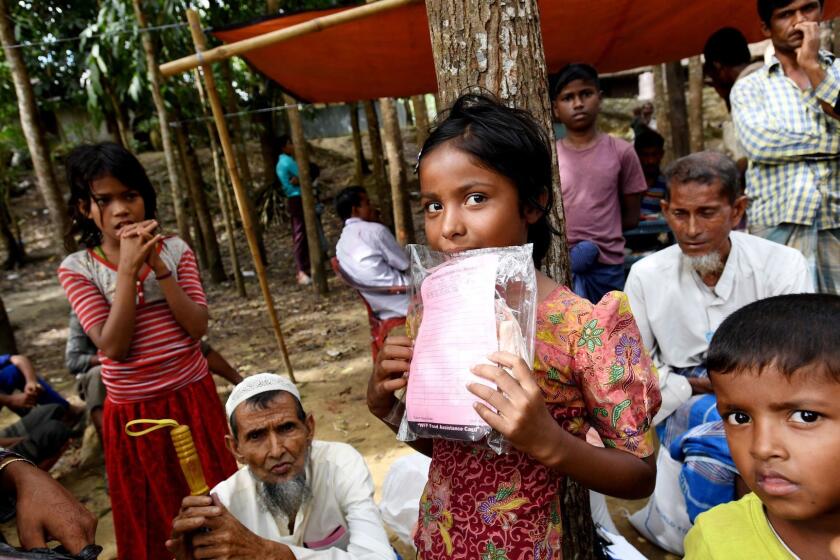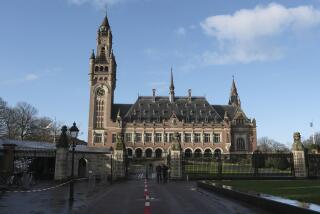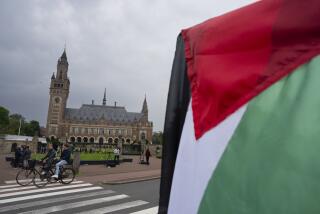‘A great victory for the Rohingya’: U.N. court orders Myanmar to prevent genocide
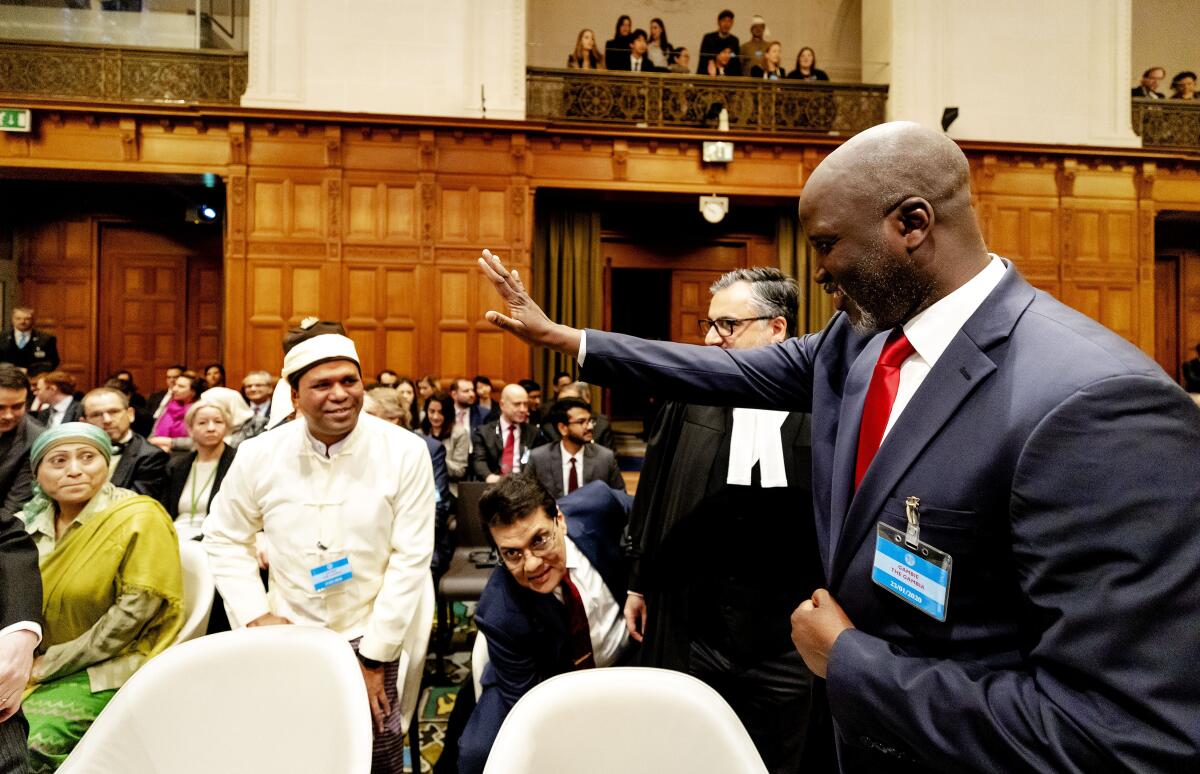
SINGAPORE — The United Nations’ top court on Thursday ordered Myanmar to take emergency measures to protect Rohingya Muslims from violence, delivering an important legal victory to a minority group that experts say has been the target of a brutal campaign of ethnic cleansing.
The International Court of Justice at The Hague also said Myanmar must preserve evidence of genocide against the Rohingya and report to the court within four months on the steps it has taken to comply with the order, and every six months from then on.
The unanimous decision by a panel of 17 judges — including one appointed by the Myanmar government — was a hailed by human rights groups as a landmark step to protect the Rohingya from persecution inside the Southeast Asian nation also known as Burma.
The court last month began hearing a case brought by the African nation of Gambia, accusing Myanmar of violating the international convention against genocide. While the case could take years to be decided, the judges found that “the Rohingya in Myanmar remain extremely vulnerable” and on Thursday issued provisional measures, which are binding under international law, to prevent further violence.
“It’s a great victory for the Rohingya,” said Tun Khin, president of the British-based Burmese Rohingya Organization, who sat in the court’s wood-paneled Great Hall of Justice as the decision was released.
“It’s been many decades that we are waiting for justice, and today we feel like justice has been partially served.”
About 600,000 Rohingya are believed to remain in the predominantly Buddhist nation — less than half the population of 2½ years ago, when the Myanmar army unleashed a savage offensive on their villages in the western state of Rakhine. Untold numbers of Rohingya were raped, maimed or killed, and more than 700,000 fled across the border to take shelter in refugee camps in Bangladesh.
The 3-month-old boy has no name.
Myanmar has long denied committing atrocities and said it was responding to attacks against security forces by a Rohingya insurgent group.
It continued that strategy of denial following the court’s decision, issuing a statement insisting “there was no genocide in Rakhine” and giving no indication that it would obey the judges and implement the provisional measures.
“It is important for Myanmar that the court reaches a factually correct decision on the merits of the case,” read a statement from the foreign affairs ministry, which accused some human rights groups of presenting “a distorted picture of the situation in Rakhine.”
Myanmar referred to the results of its own investigation of the 2017 violence, which the government released in part on Wednesday. The report acknowledged “possible war crimes” and “serious human rights violations” by army and police forces, but found no evidence of “intent or plan to destroy the Muslim or any other community in northern Rakhine state” — the government’s main defense against charges of genocide.
Human rights groups and Rohingya activists dismissed the report as a whitewash.
“This was not an independent inquiry — this was a government commission,” Nay San Lwin, co-founder of the Free Rohingya Coalition, told a news conference at The Hague on Thursday.
Myanmar’s civilian leader, former pro-democracy icon Aung San Suu Kyi, defended Myanmar’s army before the court last month but was not present for Thursday’s decision. In an op-ed in Britain’s Financial Times, she called on the international community to “give Myanmar time” to investigate crimes within its own justice system.
The comments underscored Myanmar’s longstanding reticence to punish anyone in the military establishment — which ruled the country until democratic elections five years ago and retains enormous political and economic power — for crimes against the Rohingya, whom many Myanmar Buddhists regard as migrants from Bangladesh.
Over several decades, a military junta and then Suu Kyi’s government systematically stripped the Rohingya of citizenship and basic rights. Those who remain in the country are denied freedom of movement, with many penned into open-air internment camps in Rakhine that are watched over by security forces.
Myawady Sayadaw, a crimson-robed monk whose eyes dance behind round spectacles, casts himself as a genial warrior in Myanmar’s long struggle against military rule.
In Bangladesh, where nearly 1 million Rohingya live in camps following successive waves of violence, the refugees enjoy more security. But the Bangladeshi government is intent on reducing crowding in the camps and has floated a controversial plan to ship as many as 100,000 refugees to a flood-prone island.
Most Rohingya want to be allowed to go back to Myanmar. A recent survey found that two-thirds of Myanmar’s people oppose their return, and Buddhist residents have reportedly been settling in abandoned Rohingya villages. A U.N. fact-finding mission said last year that repatriation of the refugees remained “impossible” and that Rohingya remaining in Myanmar faced “serious risk of genocide.”
If Myanmar doesn’t follow the judges’ orders, the matter could be referred to the U.N. Security Council. But Myanmar’s ally China could block attempts to enforce the order.
Still, legal experts said the decision marked an important step for accountability.
“I think this is really a great day for not just the Rohingya but for the future of international law,” Payam Akhavan, a law professor at McGill University in Montreal and a member of Gambia’s legal team, said at a news conference.
“[The court] has risen to the occasion to protect human rights and, I believe, to deter further atrocities against the Rohingya …. The contents of the orders are detailed, they are direct, and they leave absolutely no ambiguity as to what the obligations against Myanmar are.”
More to Read
Sign up for Essential California
The most important California stories and recommendations in your inbox every morning.
You may occasionally receive promotional content from the Los Angeles Times.
